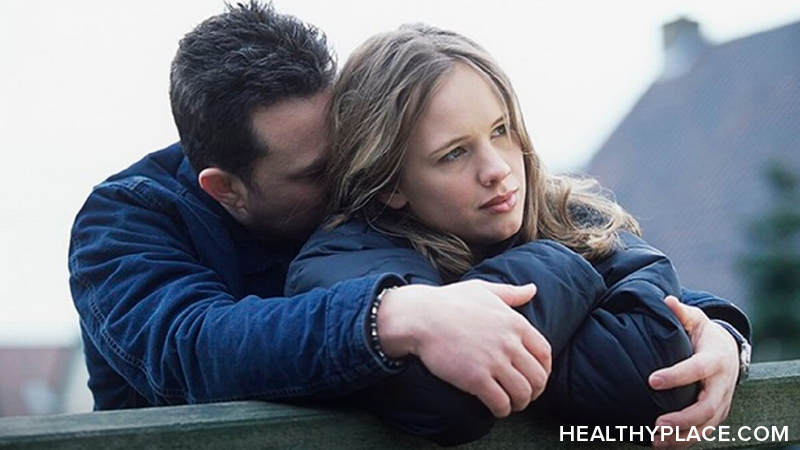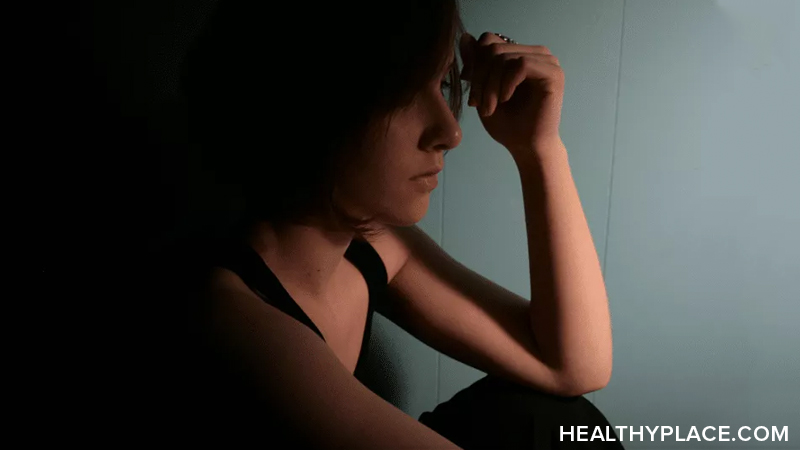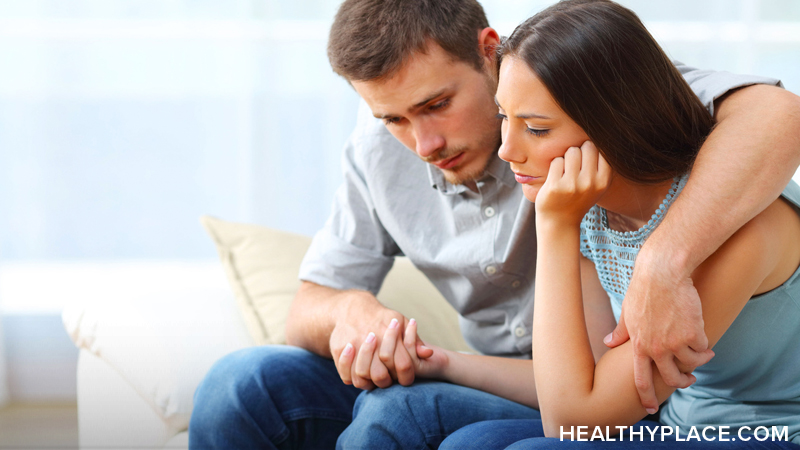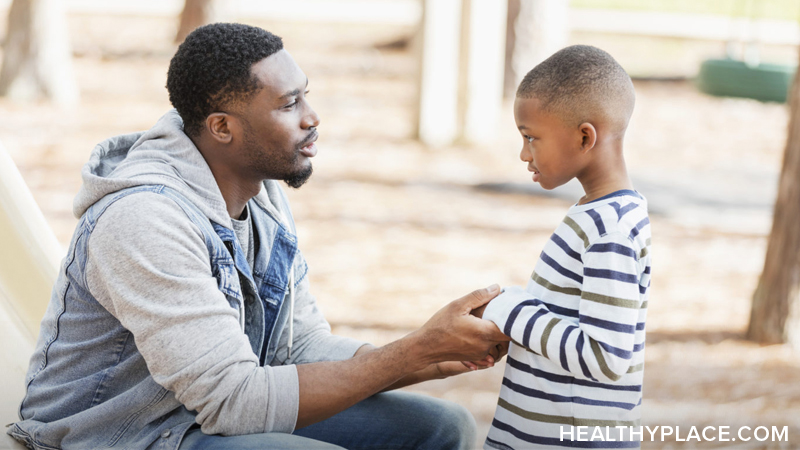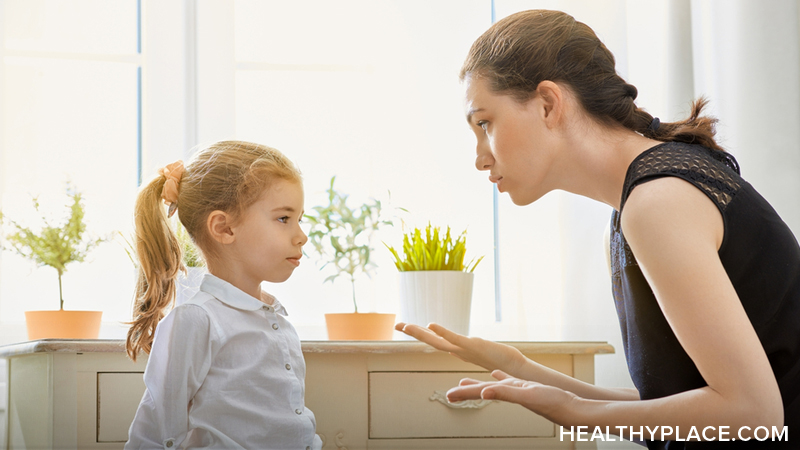
Do You Really Know How to Discipline Your Child?
Disciplining your child. (2018). KidsHealth. Retrieved June 2019 from https://kidshealth.org/en/parents/discipline.html
McCready, A. (n.d.). How to discipline your child: Top 3 positive parenting techniques. Positive Parenting Solutions. Retrieved June 2019 from https://www.positiveparentingsolutions.com/parenting/how-to-discipline-your-child
WebMD Medical Reference. (2017.). Parents, kids, and discipline. WebMD. Retrieved June 2019 from https://www.webmd.com/parenting/guide/discipline-tactics#1
How to Discipline a Child Without Hitting or Yelling
Disciplining your child. (2018). KidsHealth. Retrieved June 2019 from https://kidshealth.org/en/parents/discipline.html
Erwin, C. (n.d.). Discipline without yelling, hitting, or spanking. Positive Discipline. Retrieved June 2019 from https://www.positivediscipline.com/articles/discipline-without-yelling-hitting-or-spanking
Morin, A. (2016). 6 ways to discipline kids without yelling. verywell family. Retrieved June 2016 from https://www.verywellfamily.com/discipline-kids-without-yelling-1094746
Morin, A. (2019). 8 ways to discipline your child without spanking. verywell family. Retrieved June 2019 from https://www.verywellfamily.com/alternatives-to-spanking-1094834
Where we stand. (2018). American Academy of Pediatrics. Retrieved June 2019 from https://www.healthychildren.org/English/family-life/family-dynamics/communication-discipline/pages/Where-We-Stand-Spanking.aspx
Is There a Way to Discipline a Child Who Just Won’t Listen?
Brill, A. (2017). How to discipline a child that breaks the rules and doesn’t listen. Positive Parenting Connection. Retrieved June 2019 from https://www.positiveparentingconnection.net/how-to-discipline-a-child-that-breaks-the-rules-and-doesnt-listen/
Devine, M. (n.d.). How to discipline your child: Effective Consequences for children who won’t listen. Empowering Parents.com. Retrieved June 2019 from https://www.empoweringparents.com/article/how-to-discipline-your-child-effective-consequences-for-children-who-dont-listen/
Discipline: 5 Dos and Don’ts when your kids won’t listen. (2017.). Cleveland Clinic Health Essentials. Retrieved June 2018 from https://health.clevelandclinic.org/discipline-5-dos-and-donts-when-your-kids- wont-listen/
Parker, W. (2019). Correcting behavior in a child who won’t listen. verywell family. Retrieved June 2019 from https://www.verywellfamily.com/child-discipline-101-kids-wont-listen-1270213
What Should You Do When Your Child Lies?
Lehman, J. (n.d.). Why kids tell lies and what to do about it. Empowering Parents. Retrieved June 2019 from https://www.empoweringparents.com/article/why-kids-tell-lies-and-what-to-do-about-it/
Mason Martineau, M. (2017). What to do when my child lies? 13 ways to respond, prevent, and strengthen honest communication. Life. Retrieved June 2019 from https://www.huffpost.com/entry/what-to-do-when-my-child_b_5355641
How to Discipline Your Child for Hitting Others
Hitting and spanking. (n.d.). Positive Discipline. Retrieved June 2019 from https://www.positivediscipline.com/articles/hitting-and-spanking
Markham, L. (2013). 10 steps to stop your child from hitting other kids. Psychology Today. Retrieved June 2014 from https://www.psychologytoday.com/us/blog/peaceful-parents-happy-kids/201306/10-steps-stop-your-child-hitting-other-kids
Disrespectful Child: What Kind of Discipline Should You Use?
Disciplining your kids: Can laughter be a sign of defiance? (n.d.). Parenting Simply. Retrieved June 2019 from http://parentingsimply.com/disciplining-your-kids-can-laughter-be-a-sign-of-defiance/
Disrespectful children. (n.d.). Positive Discipline. Retrieved June 2019 from https://www.positivediscipline.com/articles/disrespectful-children
Embrett, C. (2002). How to deal with disrespectful behaviour. Today’s Parent. Retrieved June 2019 from https://www.todaysparent.com/kids/preschool/how-to-deal-with-disrespectful-behaviour/
Herrington, M. (2018). Disciplining a disrespectful child doesn’t work, but this does. Working Mother. Retrieved June 2019 from https://www.workingmother.com/disciplining-disrespect-doesnt-work-heres-what-does
Morin, A. (2019). 5 ways to handle disrespectful behavior from children. verywell family. Retrieved June 2019 from https://www.verywellfamily.com/ways-to-deal-with-disrespectful-children-1094948
How Do You Discipline a Child for Misbehaving in School?
Banks, C. (n.d.). Problems at school? How to handle the top 4 issues. Empowering Parents.com. Retrieved June 2019 from https://www.empoweringparents.com/article/problems-at-school-how-to-handle-the-top-4-issues/
Lange, A. (n.d.). How to respond when your child gets in trouble at school. Organized Motherhood. Retrieved June 2019 from https://www.organizedmotherhood.com/respond-child-gets-trouble-school/
Mauro, T. (2019). How to solve school behavior problems. verywell family. Retrieved June 2019 from https://www.verywellfamily.com/five-ways-to-stop-school-behavior-problems-3105191
Ways to Discipline Ungrateful, Spoiled Children
Morin, A. (2018). Parenting tips to improve the attitudes of ungrateful children. verywell family. Retrieved June 2019 from https://www.verywellfamily.com/strategies-to-address-an-ungrateful-child-1094964
Morin, A. (2018). Why you shouldn’t indulge your child. verywell family. Retrieved June 2019 from https://www.verywellfamily.com/why-you-shouldnt-overindulge-your-child-1094827
Shaw, G. (2012). Is your child spoiled? WebMD. Retrieved June 2019 from https://www.webmd.com/parenting/features/spoiled-child#1
How Should You Discipline a Depressed Teenager?
Emanuele, J. (n.d.). Should parents force kids with depression to do things they don’t want to do? Child Mind Institute. Retrieved June 2019 from https://childmind.org/ask-an-expert-qa/should-parents-force-kids-with-depression-to-do-things-they-dont-want-to-do/
Kids and depression: How have we come to this? ChildrensMD: Mom Docs. Retrieved June 2019 from https://childrensmd.org/browse-by-age-group/kids-and-depression-how-have-we-come-to-this/
Morin, A. (2019). 7 tips for disciplining a depressed child. verywell family. Retrieved June 2019 from https://www.verywellfamily.com/tips-for-disciplining-a-depressed-child-1094928
Conduct Disorder Interventions Help
Conduct disorder. (n.d.). Johns Hopkins Medicine. Retrieved June 2019 from https://www.hopkinsmedicine.org/health/conditions-and-diseases/conduct-disorder
Conduct disorder basics. (n.d.). Child Mind Institute. Retrieved June 2019 from https://childmind.org/guide/guide-to-conduct-disorder/
Helping your adolescent with conduct disorder. (n.d.). Evolve. Retrieved June 2019 from https://evolvetreatment.com/for-parents/parent-guides/conduct-disorder/
Discipline and Interventions for Child with DMDD
Disruptive mood dysregulation disorder (children and adolescents). (2019). Psychology Today. Retrieved June 2019 from https://www.psychologytoday.com/us/conditions/disruptive-mood-dysregulation-disorder-children-and-adolescents
Disruptive mood dysregulation disorder (DMDD). (2017). GoodTherapy. Retrieved June 2019 from https://www.goodtherapy.org/learn-about-therapy/issues/disruptive-mood-dysregulation
East Bay Behavior Therapy Center (2017). Parent series: Disruptive mood dysregulation disorder. Eastbay Behavior Therapy Center. Retrieved June 2019 from https://eastbaybehaviortherapycenter.com/parent-series-dmdd/
Jarrold, J. (2019). Challenges of parenting a child with DMDD. HealthyPlace. Retrieved June 2019 from https://www.healthyplace.com/parenting/dmdd/challenges-of-parenting-a-child-with-dmdd
How to Discipline a Child with Oppositional Defiant Disorder
ADHD Editorial Board. (2019). 8 discipline rules: Oppositional defiant disorder strategies. ADDitude. Retrieved June 2019 from https://www.additudemag.com/oppositional-defiant-disorder-discipline-rules-video/
ADHD Editorial Board. (n.d.). More than just naughty: Dealing with oppositional defiant disorder. ADDitude. Retrieved June 2019 from https://www.additudemag.com/slideshows/how-to-deal-with-a-child-with-odd-and-adhd/
What is oppositional defiant disorder and how can I manage my child’s behavior? (n.d.). Brain Balance Achievement Centers. Retrieved June 2019 from https://blog.brainbalancecenters.com/2014/03/managing-oppositional-defiant-disorder-kids
Wise, R. (2016). Top 10 discipline tips for kids with oppositional defiant disorder. Education and Behavior. Retrieved June 2016 from http://www.educationandbehavior.com/strategies-for-oppositional-defiant/
Deciding How to Discipline Your Autistic Child
Kaminsky, A. (2014). Disciplining an asperger’s child. Advanced Psychology. Retrieved June 2019 from http://www.psy-ed.com/wpblog/disciplining-an-aspergers-child/
Rudy, L.J. (2019). Why children with autism deserve rules and discipline: How discipline helps kids with autism. verywell health. Retrieved June 2019 from https://www.verywellhealth.com/why-children-with-autism-deserve-rules-and-discipline-260156
Wallace, S. (2018). My child is sometimes aggressive—what can help? Autism Speaks. Retrieved June 2019 from https://www.autismspeaks.org/expert-opinion/my-child-sometimes-aggressive-what-can-help
Weber, S. (2014). Physical discipline & autism: A parent asks for guidance. Autism Speaks. Retrieved June 2017 from https://www.autismspeaks.org/expert-opinion/physical-discipline-autism-parent-asks-guidance?gclid=Cj0KCQjwu-HoBRD5ARIsAPIPeneMO3czK724AoZEKAsY2kSZdkfvouSu8mUwpesViSz_GIOxBwODOLMaApcCEALw_wcB
Disciplining a Child with Reactive Attachment Disorder
Parenting children & teens with reactive attachment disorder. (n.d.). reactiveattachmentdisorder.com. Retrieved http://www.reactiveattachment-disorder.com/2010/10/natural-consequences-for-rad-children.html
Peterson, T.J. (2019). Parenting a child with reactive attachment disorder. HealthyPlace. Retrieved July 2019 from https://www.healthyplace.com/ptsd-and-stress-disorders/reactive-attachment-disorder/parenting-a-child-with-reactive-attachment-disorder
Smith, M., Robinson, L., Saisan, J., & Segal, J. (2019). Reactive attachment disorder (RAD) and other attachment issues. HelpGuide. Retrieved July 2019 from https://www.helpguide.org/articles/parenting-family/attachment-issues-and-reactive-attachment-disorders.htm
What to Avoid When You Discipline a Child with PTSD
Parenting a child who has experienced trauma. (2014). US Department of Health and Human Services Administration for Children and Families; Children’s Bureau. Retrieved July 2019 from https://www.childwelfare.gov/pubPDFs/child-trauma.pdf
Parenting after trauma: Understanding your child’s needs. (2015). HealthyChildren.org. Retrieved July 2019 from https://www.healthychildren.org/English/family-life/family-dynamics/adoption-and-foster-care/Pages/Parenting-Foster-Adoptive-Children-After-Trauma.aspx
Tantrum, B. (n.d.). 10 tips for disciplining traumatized children. Northwest Trauma Counseling. Retrieved July 2019 from http://www.nwtraumacounseling.org/family-resources/10-tips-for-disciplining-a-traumatized-child
I Need to Know How to Discipline My Child with ADHD. Now.
ADDitude’s Experts. (n.d.). 50 smart discipline tips for your ADHD child. ADDitude. Retrieved August 2019 from https://www.additudemag.com/wp-content/uploads/2017/01/9905_For-Parents_50-smart-discipline-tips-for-your-adhd-child.pdf
Armstrong, T. (n.d.). A kinder “time-out” that really works. ADDitude. Retrieved August 2019 from https://www.additudemag.com/do-time-outs-really-work-adhd-children/
What Does an ADHD Reward System Have to Do with Discipline?
ADHD Editorial Board. (n.d.). 10 Behavior Chart Rewards to Motivate Your Child. ADDitude. Retrieved August 2019 from https://www.additudemag.com/slideshows/reward-systems-for-kids-with-adhd-unlock-better-behavior/
Miller, C. (n.d.). Behavioral treatments for kids with ADHD. Child Mind Institute. Retrieved August 2019 from https://childmind.org/article/behavioral-treatments-kids-adhd/

